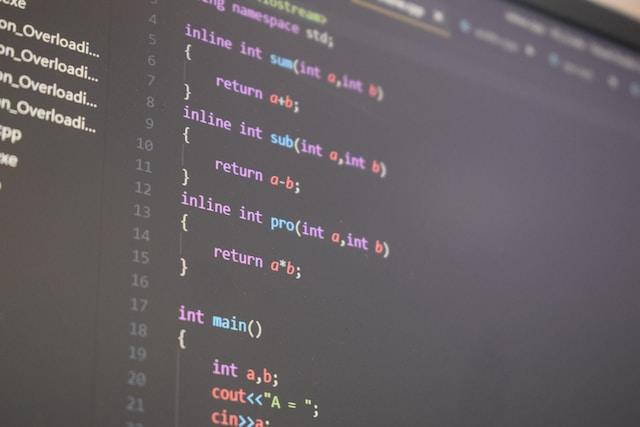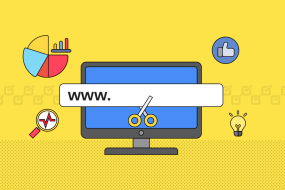
C++ is a computer language that builds on C and adds features like object-oriented programming (OOP) and more. C++ keeps the low-level features and efficiency of C, but it also has more abstractions and features that make it easier for writers to write code that is more structured and modular.
One of the benefits of using C++ programming is that it supports OOP concepts like encapsulation, inheritance, and polymorphism. This makes it easier to write good code. These ideas make it easier to reuse code, keep it working, and organize large software projects.
It’s important to remember that C++ is more complicated than C, even though it can help with code structure and system knowledge. Beginners may find it harder to learn C++ because it has more functions and abstractions.
Both C and C++ are powerful languages that are widely used in system programming, embedded systems, game creation, and many other areas. It normally takes a long to learn this language but if you want to learn it in a simple way and more quickly you can also take C++ assignment help from experts.
How Long Does It Take to Learn C++?
When you have to solve hard computer problems, it will take you longer, about 6–12 months. Since C++ is often changed, no one will ever be able to say that he or she is a master of C++. When you feel like you know everything about it, it will be changed again.
If you have never programmed before, you may need to put in more time and effort to learn C++. Start by learning the basics of computing, like variables, data types, control structures, and functions. As you learn more, you can learn about more difficult topics like object-oriented programming, memory management, and the Standard Template Library (STL).
Most of the time, it takes years of experience and real-world use to become good at C++ and understand its features and best practices well. It’s a process of learning, experimenting, and improving all the time. As you learn more about C++, you’ll be able to handle more complicated situations and bigger tasks.
What Are the Benefits of C++ Language For You?
Take a look at the benefits of C++ are given below:
- Performance Efficiency: C++ gives you low-level access to hardware and memory, which lets you handle resources in a very good way. This lets developers write code that is highly optimised and can run quickly and efficiently, making it good for applications that depend on speed.
- Object Oriented Programming: Some OOP ideas can be used in C++, like encapsulation, inheritance, and freedom. OOP makes it easier to organise, reuse, and break up code, which can speed up development and make it easier to fix.
- Standard Template Library: Standard Template Library (STL) is a powerful and large part of C++. The STL is a set of general data structures and algorithms, such as containers (like vectors and lists) and algorithms (like sorting and searching). It saves time on development by having efficient solutions to common programming jobs already built in.
- Compatibility With C Language: C++ can work with C code, which means that C code can be used in C++ apps. This lets developers use current C libraries and codebases, which makes it easier to reuse code and work with other programs.
- Community and Ecosystem: There are a lot of coders who use C++ and work on its libraries, frameworks, and tools. The ecosystem has been around for a long time and has a lot of tools, documentation, and support. This makes it easy for developers to find answers and learn from others.
What is C++ Programming Language?
C++ is a general-purpose programming language which builds on the C programming language. It was made by Bjarne Stroustrup in the late 1970s to improve C by adding more features and functions.
C++ combines the low-level control and efficiency of C. It is object-oriented programming (OOP) ideas and high-level abstractions. It gives developers a powerful and flexible programming language that they can use to write code that works well on different platforms and in different fields.
How Do You Learn C++ Language?
People often think that C++ is a difficult computer language to learn, especially for beginners. The language has a lot of features, such as low-level control and memory management, which can make it harder to use than some other languages.
Many people who want to become coders start with web development languages like HTML, CSS, and JavaScript. Web programming is an easier way to start learning how to code, and it can also be a way to get work experience and make money. HTML and CSS take care of how web pages are put together and how they look, while JavaScript adds interactivity and dynamic features.
A programmer’s job often involves learning more than one computer language over time. Each language has its own strengths and uses, and skills learned in one language can often be used in others.
C++ Programming Language Popularity According to Google Trends!
According to google trends the popularity ratio of C++ programming language is very high. The reason is C++ language has been running for many years. It is used in game making, application development, library and frameworks, cross platform development, high performance computing etc.
Google Trends can show you how popular a term or topic is and how many people are searching for it. If C++ has a high popularity number, it means that there is a lot of interest and activity around the language.
Conclusion
Dennis Ritchie created the portable, easy-to-use UNIX C computer language. C++ introduces OOP. C++ offers performance efficiency, OOP, STL, C language compatibility. In 1970 Bjarne Stroustrup created C++ from C. OOP and high-level abstractions combined with C’s low-level control and performance.
C++ is used for game, application, library, framework, cross-platform, and high-performance computing development.Learning of C++ takes 6-12 months and mastery years. Google Trends shows C++ popularity. For more latest information and future updates bookmark our website and stay tuned with us.







